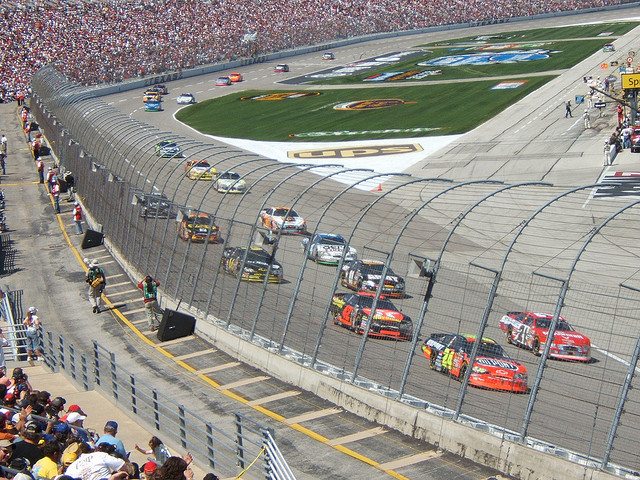The National Association for Stock Car Auto Racing started its season on February 23 with the National Cup race at the Daytona Raceway. Tony Stewart won the race, but his victory was overshadowed by a crash in which fans were injured. Thirty-three fans were injured, 19 taken to area hospitals. When these kind of accidents happen questions must be answered. My first question: is it a risk for fans to be at the race? And second, are the fans too close to the track?
I’m not a big NASCAR fan, but after hearing and reading about the crash at Daytona, I think that it is somewhat of a risk for a fan to be at the race. But it also depends where you are seated. Many of the injured fans were really close to the track, making it more of a risk to be injured. If I were a big NASCAR fan I would like to be as close to the action as possible. Since I’m not a big NASCAR fan I’d probably sit further away. It’s not like attending a football, basketball or baseball game, where you’re less likely to be injured.
Fans want to get as close to the action as possible. Basketball fans actor, Jack Nicholson, who has been courtside at the Los Angeles Lakers games since I can remember and actor and writer Spike Lee who is regularly at New York Knicks games pay top dollars for their courtside seats. NASCAR fans should be given the same opportunities as any other fans. The opportunity to get as close to the action as possible, as long as they are not put at risk of injury or death.
In professional sports the players take the risk of injury, not the fans. But professional sports organizations pay good money to keep the game and players as safe as possible. So the same should be done to keep NASCAR fans safe. It might be a good idea if NASAR moved fans farther away from the track. Maybe they should restructure the track. But something should be done so these accidents don’t happen again.




